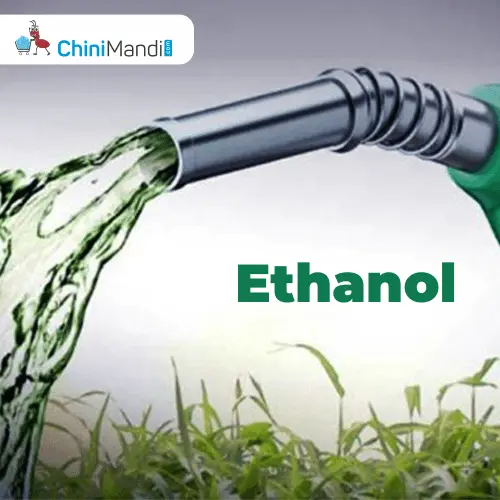Mumbai: India’s expenditure on crude oil is soaring gradually causing pressure on foreign exchange, and also seems to be a hindrance in achieving the net-zero emissions target by 2070. To thwart the burden, the Indian government is taking various steps, and Ethanol Blending with Petrol (EBP) Programme is one of them. For the unversed, ethanol – one of the key products of sugar mills and distilleries – is considered to be better for the environment than traditional fuel.
In the last few years, the Centre has formulated many friendly policies that helped in boosting ethanol production as it has become a saviour for many industries, along with farmers. For the Indian sugar industry, ethanol is really a game changer. It has helped the sector to manage surplus sugar, which affected sweetener prices. Now mills are capable to divert excess sugar for ethanol production, which is beneficial for the sector’s financial health.
Ethanol is helping growers to earn additional income, aiding India to reduce dependence on imported crude oil, saving foreign exchange, and lifting sugar mills’ revenue. In the last seven-eight years, ethanol blending with petrol has helped the country save Rs 50,000 crore in foreign exchange.
In a war against Covid-19, India relied heavily on ethanol which played a pivotal role in keeping the virus at bay. Due to the outbreak of Covid-19, demand for sanitisers surged, and then ethanol came to the rescue as it was one of the essential required raw materials to produce sanitiser.
Stubble burning by farmers in many states of India raises concern among citizens and policymakers as it causes pollution. And the solution to tackle the issue lies in ethanol. Stubble can be used as a feedstock in biofuel production, and therefore gauging the seriousness of the matter, a new 2nd generation ethanol plant was recently established in Haryana, which was launched by Prime Minister Narendra Modi. Following the footsteps, many companies in India are keen to set up ethanol units, in various states, as it is also a profit-making enterprise because of lucrative payments by Oil Marketing Companies (OMCs) which procures ethanol.
Aiming to achieve a 20 per cent ethanol blending target by 2025, the government is taking various steps to increase biofuel production. Moving in the same direction, ethanol production capacity in the country has been increased to 947 crore litres per annum till 30th November 2022. Out of these, Molasses-based distilleries have a capacity of 619 crore litres. Whereas Grain-based distilleries have a capacity of 328 crore litres.
The Public OMCs have procured 385.92 crore litres of ethanol up to 15th November, 2022 for blending in petrol during the Ethanol Supply Year (ESY) 2021-22. Ethanol Blending in Petrol up to 15th November, 2022 during the ESY 2021-22 is estimated to have had an impact of over Rs.20,000 crore on the import bill of crude oil and petroleum products.
Ethanol production in India is likely to increase as the Centre approved, in last month, higher ethanol prices derived from different sugarcane-based raw materials under the EBP Programme for the season 2022-23.












